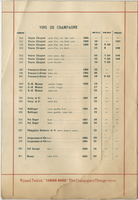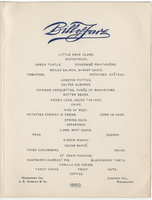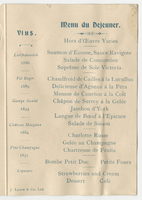Search the Special Collections and Archives Portal
Search Results
New hours for Stratosphere Tower elevator operations: video
Date
1996-07-01
Archival Collection
Description
Las Vegas, Nevada newscast discussing a reduction in Stratosphere Tower elevator hours of operation. Original media VHS, color, aspect ratio 4 x 3, frame size 720 x 486. From the Bob Stupak Professional Papers (MS-01016) -- Professional papers -- Audiovisual material -- Digitized audiovisual clips file.
Moving Image

Patio at Locker Room bar, 700 East Naples Drive, no. 111, Las Vegas, Nevada: digital image
Date
2016-07-28
Archival Collection
Description
From the Dennis McBride Photograph Collection (PH-00263) -- LGBTQ+ events and organizations in Las Vegas, Nevada -- Digital images file.
Image

Tony Clark and Raul Mangubat attend the Club Metro bar grand opening, Las Vegas, Nevada: digital image
Date
2013-07-20
Archival Collection
Description
From the Dennis McBride Photograph Collection (PH-00263) -- LGBTQ+ events and organizations in Las Vegas, Nevada -- Digital images file. Individuals identified by the donor, Dennis McBride: Tony Clark; Raul Mangubat
Image
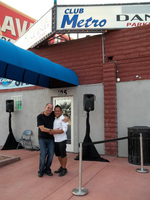
Tony Clark and Raul Mangubat attend the Club Metro bar grand opening, Las Vegas, Nevada: digital image
Date
2013-07-20
Archival Collection
Description
From the Dennis McBride Photograph Collection (PH-00263) -- LGBTQ+ events and organizations in Las Vegas, Nevada -- Digital images file. Individuals identified by the donor, Dennis McBride: Tony Clark; Raul Mangubat
Image
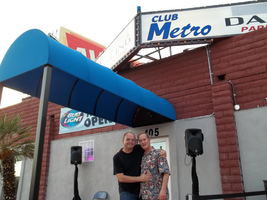
Tony Clark and Dennis McBride attend the Club Metro bar grand opening, Las Vegas, Nevada: digital image
Date
2013-07-20
Archival Collection
Description
From the Dennis McBride Photograph Collection (PH-00263) -- LGBTQ+ events and organizations in Las Vegas, Nevada -- Digital images file. Individuals identified by the donor, Dennis McBride: Tony Clark; Dennis McBride
Image

Club Metro bar grand opening, Las Vegas, Nevada: digital image
Date
2013-07-20
Archival Collection
Description
From the Dennis McBride Photograph Collection (PH-00263) -- LGBTQ+ events and organizations in Las Vegas, Nevada -- Digital images file. Individuals identified by the donor, Dennis McBride: unidentified Club Metro owner; Raul Mangubat
Image
Pagination
Refine my results
Content Type
Creator or Contributor
Subject
Archival Collection
Digital Project
Resource Type
Year
Material Type
Place
Language
Records Classification

